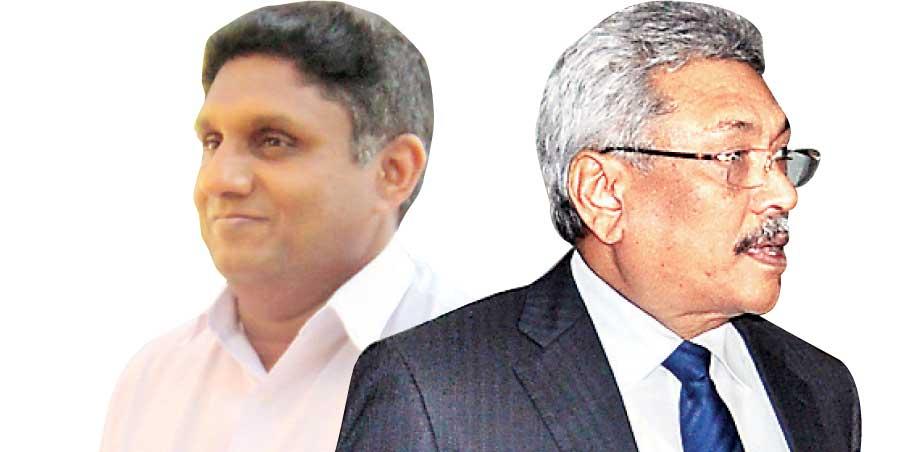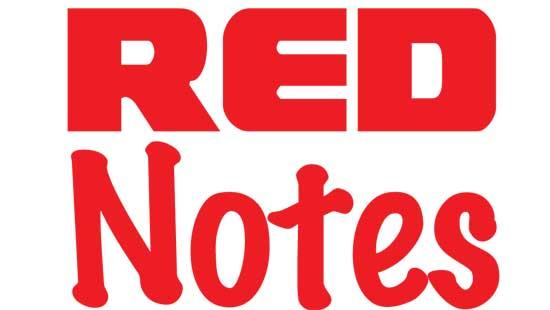Reply To:
Name - Reply Comment
Last Updated : 2024-04-19 05:51:00

The Presidential election nominations are to be finalised today with numerous contestants, but the outcome is going to be a battle between Sajith Premadasa and Gotabaya Rajapaksa. Both of them have managed to survive major challenges to their candidacy over the last few weeks. Sajith has secured UNP nomination after a long struggle to gain the agreement of his party leader and Gotabaya has overcome legal challenges towards dismissal of his nomination.
"The current election debates are fast-centering on the issue of national security and delivering on an export oriented economy"
In my past columns, I have discussed the dangers of a Gotabaya presidency, which could lead to authoritarian consolidation with a Sinhala Buddhist nationalist social base consisting of chauvinist professional and business constituencies as well as retired military actors. Coming to Sajith, he has not taken clear positions on issues, and his campaign has centred on his image linked to the rural Sinhala constituencies and the legacy of his father, who had drastically shaped Sri Lankan politics in the late 1980s and early 1990s. Furthermore, Sajith in hiding behind the rhetoric of expert knowledge and processes, is in effect promoting neoliberal technocrats with mere lip service to the rural. Neither in the past, nor in recent weeks, has he articulated a vision to address the national question and the broader concerns of minorities, which are under attack by chauvinist forces. This bring worries of Sajith succumbing to nationalist forces, if not in the run up to the elections then after the elections.
"Sajith has not taken clear positions on issues, and his campaign has centred on his image linked to the rural Sinhala constituencies and the legacy of his father"
The Presidential election outcomes pose difficult problems. With Gotabaya, it is immediate authoritarian consolidation that will rapidly and drastically change the politics in the country, where the parliament will also come under Rajapaksa control. With Sajith, relative instability is likely during the first few years, as with the current term of the UNP Government with a divided parliament. In both cases, the fundamental issues facing the broader citizenry will not be addressed, but the space for struggles and resistance will be different. Repression and restriction of democratic space after a Gotabaya victory, where as a medium term window for democratic struggles to forestall neoliberal consolidation after a Sajith victory. How then should progressive actors ideologically position themselves with the Presidential elections?
Electoral politics are about the reality of the times and the timing of decisive actions. And what those supporting unwinnable candidates during this crucial moment fail to consider is the political path after the elections. The current political environment of Sinhala Buddhist and Tamil nationalist ascendancy, Islamophobic mobilisations and rural nativist resurgence are the consequence of years of ideological work by right wing forces. This political trajectory cannot be reversed in the few weeks leading up to
the elections.
In this context, a progressive agenda has to see the debates around the elections as an initial step towards shaping the ideological terrain after the elections for the longer-term work of democratising state and society.
In other words, electoral political engagement should challenge chauvinist authoritarian consolidation and ensure democratic space for continuing such ideological struggle after the elections. The conundrum we face at this crucial time is the need to defeat Gotabaya, which only Sajith is capable of, but also challenge the politics of Sajith, and continue the ideological struggle after the elections. What are the elements of such ideological struggle?
"Gota is calling for strengthening and even immunity for state intelligence. Can a debate on the problematic aspects of militarisation be initiated now to ensure freedoms for people’s struggles in the future?"
 I illustrate my point with a lesson from the last presidential election. In 2015, the defeat of the Rajapaksa regime was vital for opening democratic space, but the future possibilities were limited with the election fought on the issue of corruption. After the elections, the ideological dominance of the corruption agenda continued with the Government and the Joint Opposition debating as to who was more corrupt. In the meantime, neoliberal economic policies set by the Rajapaksa regime continued; liberalisation of finance and trade accelerated, the debt situation worsened and the rural economy deteriorated, culminating in the current crisis. Sadly, the same infrastructure and vanity projects including the Hambantota Port, Colombo Port City and the Lotus Tower continued to be the subjects of debate and
I illustrate my point with a lesson from the last presidential election. In 2015, the defeat of the Rajapaksa regime was vital for opening democratic space, but the future possibilities were limited with the election fought on the issue of corruption. After the elections, the ideological dominance of the corruption agenda continued with the Government and the Joint Opposition debating as to who was more corrupt. In the meantime, neoliberal economic policies set by the Rajapaksa regime continued; liberalisation of finance and trade accelerated, the debt situation worsened and the rural economy deteriorated, culminating in the current crisis. Sadly, the same infrastructure and vanity projects including the Hambantota Port, Colombo Port City and the Lotus Tower continued to be the subjects of debate and
further investment.
The democratic forces that contributed to defeating the Rajapaksa regime could not sustain the ideological struggle to reshape economic policies; the radical left and the JVP were all caught reacting to the blame game of corruption.
The current election debates are fast-centering on the issue of national security and delivering on an export oriented economy, even as corruption and the undercurrents of anti-minority politics are also likely to shape voter sentiments. Anti-Muslim discourse linked to the Easter Sunday attacks and xenophobic fears of “international intervention” to target the Colombo elite and the Tamil minority are likely to be peddled to mobilise the majority Southern constituencies. Therefore, national sovereignty and security coupled with technocratic development free of corruption are the central elements of the elections debates set by the dominant actors. In this context, how should progressives seek to shift the election debates in order to continue their ideological struggles post-elections?
"Political trajectory cannot be reversed in the few weeks leading up to the elections"
First, a decade after the war, we are yet to begin a serious debate in the country on demilitarisation. Instead, the Easter Attacks have provided the ground for calls to give greater powers to the security sector. Gotabaya is calling for strengthening and even immunity for state intelligence. Can a debate on the problematic aspects of militarisation be initiated now to ensure freedoms for people’s struggles in the future?
Second, devolution of power to the regions and protection of minorities has become crucial with the hardening of chauvinist majoritarian forces. While there is little chance of guaranteeing progressive constitutional reforms after the elections, could at least debates on the dangers of attacks on minorities and ethnic polarisation be taken
forward now?
"The democratic forces that contributed to defeating the Rajapaksa regime could not sustain the ideological struggle to reshape economic policies"
Third, class inequalities are either not addressed or deflected by grand economic programmes of export-led economic growth with Foreign Direct Investment, in a time when the global economy provides little room for such possibilities. The rights and wages of the urban working classes, the rebuilding of rural livelihoods and social welfare investment including to strengthen free healthcare and education have to be pushed to the fore of the election debates.
These crucial issues should engage the public imagination in the weeks ahead so that such struggles can continue in the years ahead. Elections are only a moment in the democratic life of the country, but a critical moment in determining the direction and consolidation of state power. In parallel, the ideological struggle for equality – the essence of any radical democratic politics – should be sustained to challenge and reshape state policies and power. A progressive election agenda needs to forestall the consolidation of regressive state power even as stronger avenues are created for democratic struggles
and equality.

Add comment
Comments will be edited (grammar, spelling and slang) and authorized at the discretion of Daily Mirror online. The website also has the right not to publish selected comments.
Reply To:
Name - Reply Comment
On March 26, a couple arriving from Thailand was arrested with 88 live animal
According to villagers from Naula-Moragolla out of 105 families 80 can afford
Is the situation in Sri Lanka so grim that locals harbour hope that they coul
A recent post on social media revealed that three purple-faced langurs near t